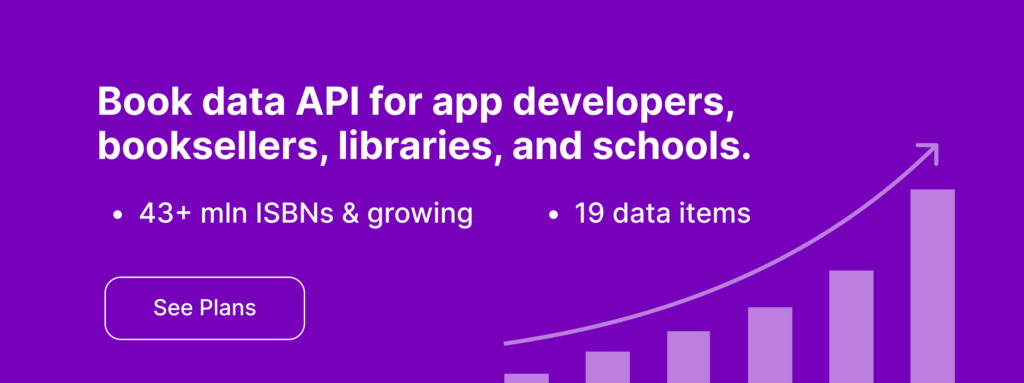
In the world of modern technology, Application Programming Interfaces, or APIs, have become an essential tool for developers to create amazing applications. They allow developers to easily integrate different sources of data and services into their applications, thus reducing development time and cost.
For book lovers and enthusiasts, APIs can provide a wealth of information about books, including information on publication dates, author biographies, book reviews, and ratings.
In this blog post, we will explore the top 9 book APIs for 2025. So, whether you’re a book lover or a publishing professional, read on to discover the APIs that will make your life easier in 2025.
1. ISBNdb API
ISBNdb API is a powerful tool that provides access to a comprehensive book database and book-related data. Established in 2001, it is the oldest book database available, containing over 43 million book titles. With 19 data points, including weight, pages, author, publisher, publishing date, ISBN (ISBN10 and ISBN 13), and more, you can access detailed information about any book using this API.
One of the notable features of ISBNdb is that it provides book prices from various retailers, making it an excellent resource for comparing prices before making a purchase.
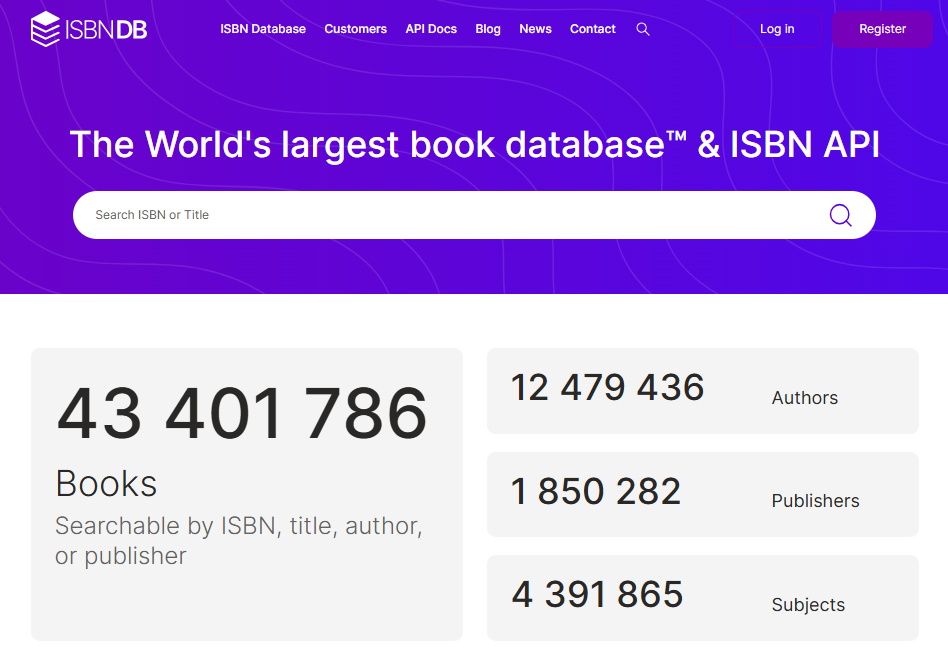
It’s important to note that accessing the data isn’t free. However, ISBNdb offers three different pricing plans tailored to your specific needs. The ISBNdb API has a default limit of one request per second across all endpoints. However, if you’re a PREMIUM subscriber, you can enjoy a limit of three requests per second. Alternatively, if you’re a PRO subscriber, you are entitled to five requests per second. To learn more about the ISBNdb APIs and their capabilities, check out the complete documentation available on the developer portal.
2. Bookshare API
Bookshare API is a one-of-a-kind API that provides access to a library of accessible books for people with disabilities. They specialize in overcoming technical obstacles to bring books to those with visual impairments or other physical disabilities that prevent them from accessing print media. This global online library allows you to search for books by author, title, or keyword. You can also access book metadata and cover images. Additionally, the latest API also supports more features such as Reading Lists, Assign & Read, and user roles that allow Membership and Collection management.
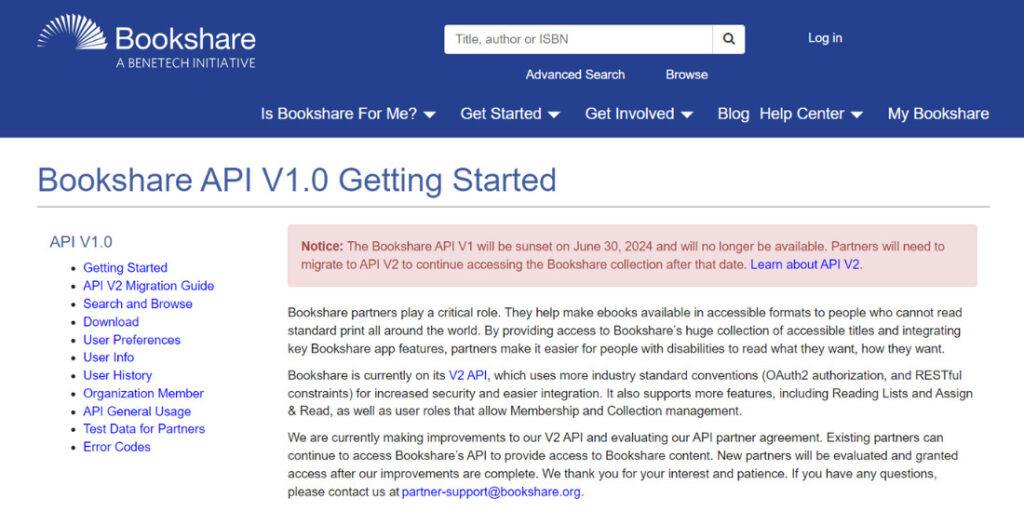
If you’re a developer interested in using Bookshare API, you’ll need to obtain an application key. Keep in mind that these keys may vary depending on the device the application is being developed for.
3. Internet Archive API
The Internet Archive API is another essential book API. It provides access to a vast collection of books, including rare and out-of-print titles. It hosts archives of websites, books, pictures, videos, and documents. Like a traditional library, the Internet Archive allows anyone to peruse its vast digital collection. Currently, the Internet Archive API scans roughly 4,300 books daily across a network of 18 global locations. Their website boasts an archive of almost 41 million books and texts.

Internet Archive categorizes its information into three sections — items, collection, and metadata. For instance, books, videos, and PDF documents fall under the “items” category. The free explorer lets you navigate the Internet Archive’s vast collection of books and even customize your API calls. You can overview the API here.
4. Open Library
Open Library is a free, open-source digital library that offers an extensive database of free books, with nearly 30 million titles available and regularly updated. It is powered by the Internet Archive and provides users with detailed information about individual books, including page numbers, cover images, and book content. The project is committed to building web pages for every published book, providing access to download databases.
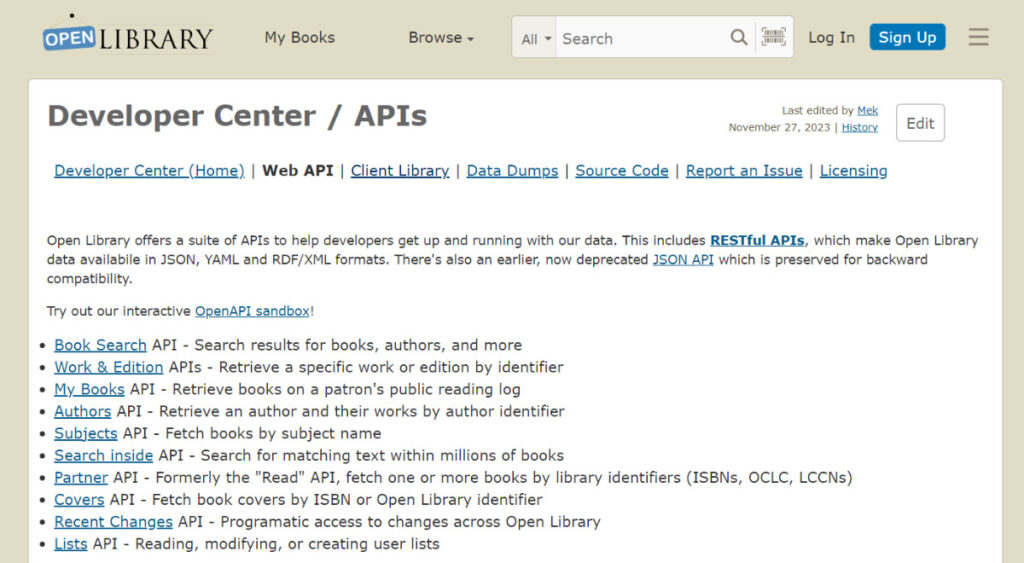
Developers can retrieve book records through Open Library APIs, providing access to contents, subject headings, and cover images for available books. The APIs also allow users to search within books, with data being returned in JSON, YAML, or XML formats.
5. Google Books API
The Google Books API is an incredible resource that grants access to the world’s largest digital library. Developers can take advantage of this API to conduct full-text searches for books while receiving ratings, reviews, and author information. Not only that, but Google Books API also allows users to preview books and gain access to their full text making it an indispensable tool for book lovers, readers, and researchers alike. One of the most noteworthy features of Google Books is the exhaustive documentation they provide for their APIs. This documentation includes multiple examples and use cases, ensuring that users can effectively leverage the API’s full potential. Furthermore, Google’s viewer program allows for seamless embedding of book content directly into websites and web applications.

There are two authentication methods available for using Google Books API: key-based and OAuth2. The key/value pair-based authentication is the more commonly used method, as it involves signing up for developer access and using the key/value pair to make API requests.
6. Amazon Books API
Amazon Books API is a popular API that provides access to Amazon’s vast collection of books. That’s why it is a valuable resource for developers seeking to create innovative applications. The product advertising API provides access to information on all products sold on Amazon — not just books. Whether you’re looking for a specific ISBN, title, or author, the API offers a myriad of variables to help you search for the information you need. In order to access this vast database, developers must first register their accounts under the Amazon Associates Program, which allows them to become affiliate partners with Amazon and sell their products. Once registered, developers can use APIs to build applications tailored specifically to sell books.
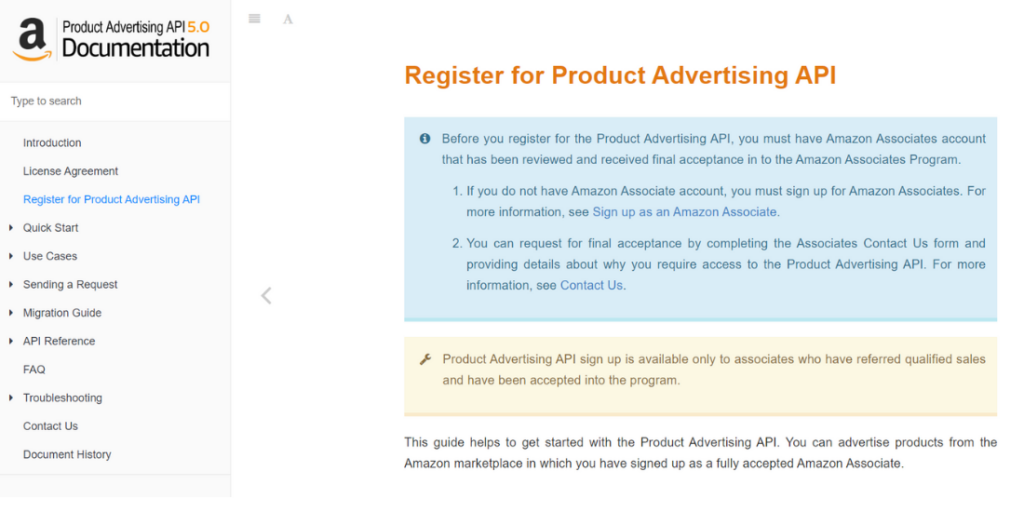
7. Merriam-Webster API
The Merriam-Webster API provides developers with access to the Merriam-Webster dictionary and thesaurus. With this API, developers can get definitions, synonyms, antonyms, and examples of usage for words in the English language. Users can also listen to audio pronunciations, view example sentences, and learn about word origins. The API is easy to use and requires a developer key to access it.
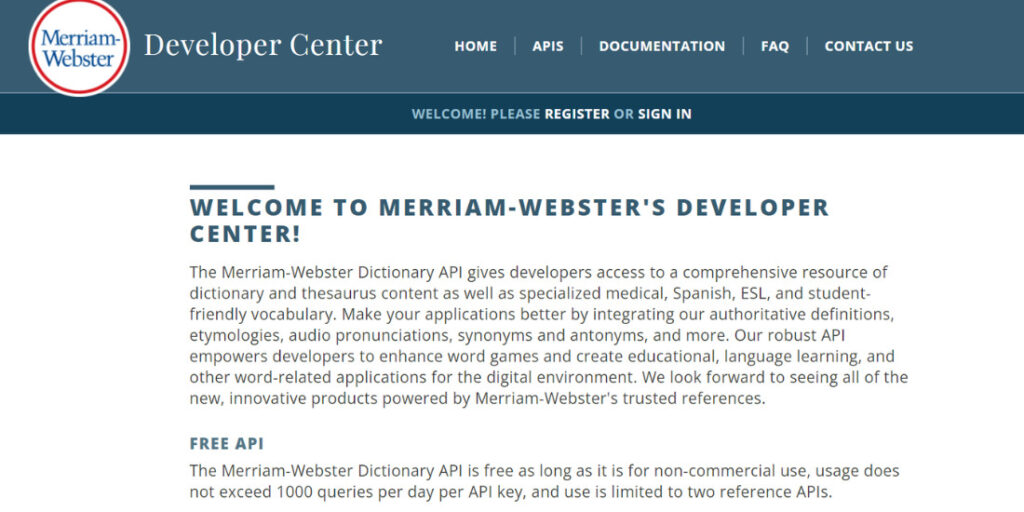
The Merriam-Webster API is an essential tool for developers who want to create applications that involve language and vocabulary. It is important to note that the Merriam-Webster Dictionary API is free to use for non-commercial purposes, while commercial use requires a paid plan. Integrating the API into web and mobile applications is also effortless, making it an adaptable tool for various projects.
8. The New York Times Books/Bestsellers API
The New York Times Books/Bestsellers API offers developers the opportunity to create custom applications with access to NY Times bestseller lists, book reviews, recommendations, and other book-related content. The APIs are designed with restful architecture and can be accessed through HTTPS calls. With this API, you can get access to data on bestselling books across different genres, as well as reviews and articles on books and authors. You can choose from four different request methods: book review services, the history of a best seller, bestseller lists, and the names of NY Times bestseller lists. It’s worth noting that all API requests must include an API key within the query string, as outlined in their developer portal documentation. The New York Times has a cap of 4,000 requests per day, limited to 10 requests per minute. Developers should also keep a six-second gap between calls.
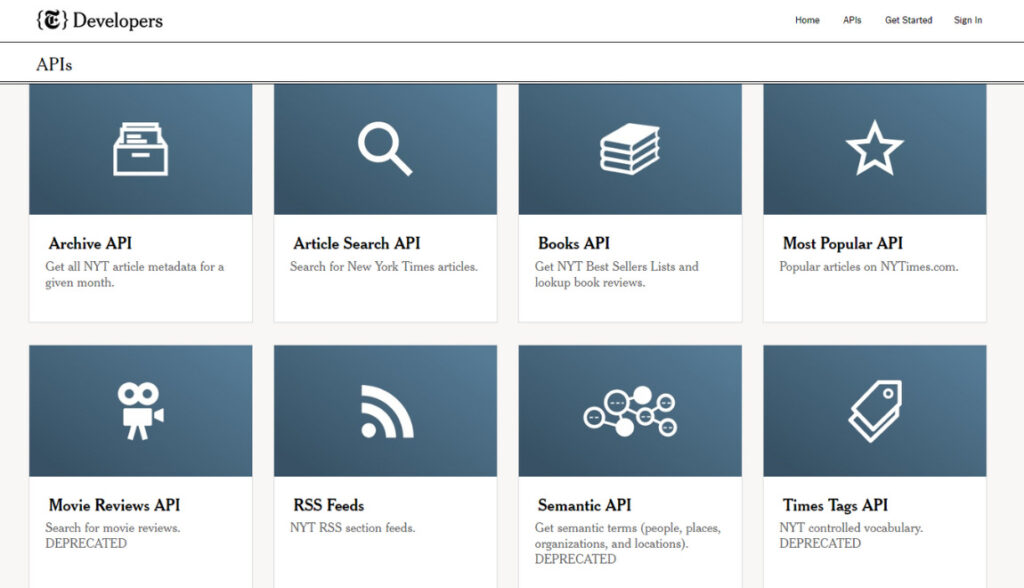
9. Oxford Dictionaries API
The Oxford Dictionaries API provides developers with access to Oxford’s extensive list of dictionaries and reference materials. This API offers developers a range of services, from simple word definitions to more complex language analysis tools. With over 350,000 phrases and words, the API includes synonyms, antonyms, definitions, and example sentences. Developers can also access different types of dictionaries, including bilingual dictionaries and thesauruses, along with language translation tools. The Oxford Dictionaries API also provides advanced search features, enabling users to search for specific phrases, idioms, and phrasal verbs. This API is useful for developers who want to build applications such as AI, bots, games, learning tools, and research tools that involve different languages and cultures.
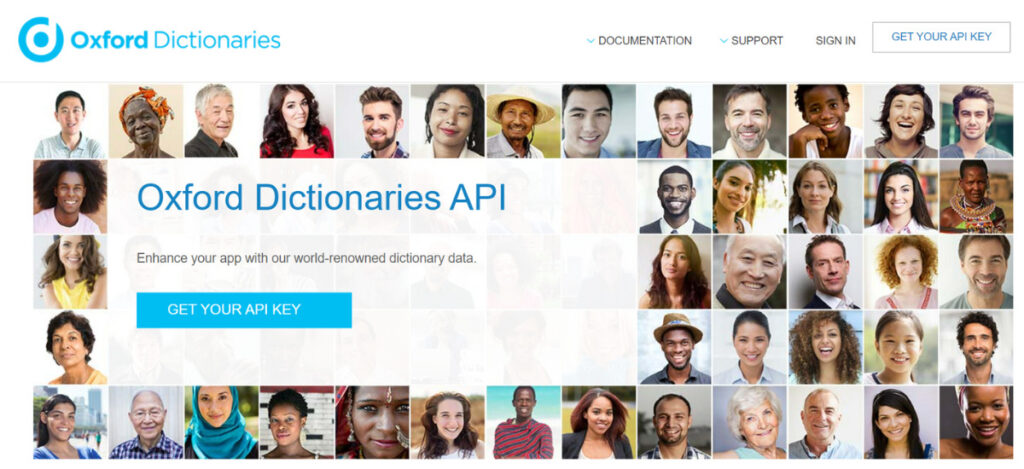
Summing Up
The world of book APIs is constantly evolving and expanding, and staying up-to-date with the latest tools and resources is essential for anyone involved in the book industry. The APIs we have discussed in this article are just a few of the many options available, but they are certainly some of the most useful and versatile. By incorporating these top book APIs into your workflow, you can save time, improve efficiency, and gain a competitive edge in the ever-changing world of books.
If you’re interested in optimizing your reading experience further, be sure to check out our posts on Book Tracking Apps and The Best Book Summary Websites to discover tools that help you stay organized and make the most of your reading journey.


